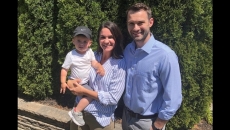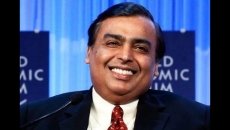Managing your money without a bank account is doable. But it can pose challenges — and the COVID-19 pandemic has only added more.
Your economic impact payment might’ve arrived weeks or months after others’ did, in the form of a check or prepaid debit card, because you couldn’t choose the faster delivery option of direct deposit into a bank account. And if you’ve gone to the store lately, you may have been asked to pay with a debit or credit card or in exact change due to a nationwide shortage of coins and concerns over germ transmission.
A bank account can make life easier in these situations, among others. To avoid future issues, consider opening one — or try again if you’ve been rejected in the past. Here’s a guide to getting started.
ASSESS YOUR MONEY NEEDS
If you’re one of the 14 million adults without a bank account in the U.S., you might have a system that works for you. Maybe that includes using alternative products such as prepaid debit cards and check cashing services. Financial counsellor Brandy Baxter has worked with clients who used check cashing services for practical reasons.
“They preferred to walk in, walk out with cash in hand,” says Baxter, an accredited financial counsellor and financial coach who runs the firm Living Abundantly in the Dallas-Fort Worth area.
Check cashing stores like Check ’n Go and ACE Cash Express may operate for longer hours than banks and have easy approval processes to get cash quickly. But this comes with a steep fee, which can range from 1% to 6%, or more, of the check amount.
Bank accounts can fulfil money needs beyond what prepaid cards and check cashing services can. For example, their fraud protections can limit what you pay if you’re victimized, and many accounts let you lock debit cards remotely when stolen.
And once you’ve begun a relationship with a bank, other doors open: Credit cards, auto or small business loans and cheaper alternatives to payday loans may eventually be within reach.
Checking accounts “don’t just help you save costs; they’re the stepping stones to use other financial products,” says David Rothstein, principal at Cities for Financial Empowerment Fund, who manages BankOn, a national platform that promotes financial inclusion.
FIND A BANK THAT FITS YOU
If you find banks intimidating or have had issues getting an account before, community banks and credit unions tend to be more accommodating than national banks and are often mission-driven — for example, focusing on the financial health of their surrounding communities.
“We’re very lenient at giving someone a second chance,” says Pedro Murillo, area branch manager in the San Francisco Bay Area for Self-Help Federal Credit Union. “If an employee comes in to apply for a loan and doesn’t have pay stubs, what else (can they) show us? A letter from (their) employer? We don’t want to give up.”
Like other credit unions, Self-Help requires a person to open a savings account to become a member; the minimum to open an account is typically a few bucks. Then members can apply for other products, like a credit builder loan.
You can search online for the term “CDFI” — which stands for community development financial institution — to find credit unions like Self-Help near you. Many require those who join to be in the same area or state where the credit union or bank has branches.
WHAT TO KNOW ABOUT APPLYING
To open an account, you’ll generally need your Social Security number, one or two forms of identification and money for the first deposit.
It’s common to apply for two bank accounts at the same time: a checking and a savings account. The checking account grants access to a debit card, bill payment system and other services, while the savings account lets you set money aside and, ideally, grow by earning interest.
Banks usually screen applicants on ChexSystems, a national reporting agency that keeps records of accounts closed against a person’s will. If you have lost access to a bank account in the past, you might be rejected by other banks until you settle your ChexSystems record. This can mean paying off debt to a bank or disputing errors on the record.
Once you’re cleared, consider what banks often call a second chance checking account or a BankOn-approved checking account. Many of these don’t charge overdraft fees, which kick in if you try paying for something that would put your balance in the negative.
Finding and opening the right bank account involves some effort. But once you’re approved, having a safe place for your money and a better chance to get affordable loans can make it worthwhile.
“To have a checking account… is the cornerstone of any financial empowerment effort,” Rothstein says.






